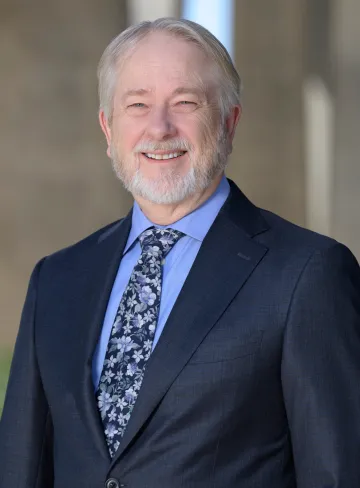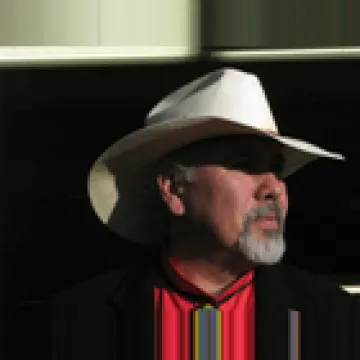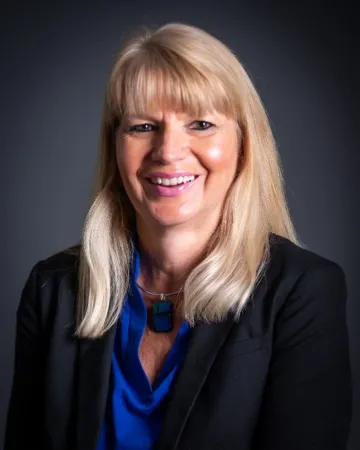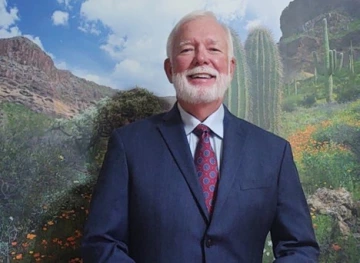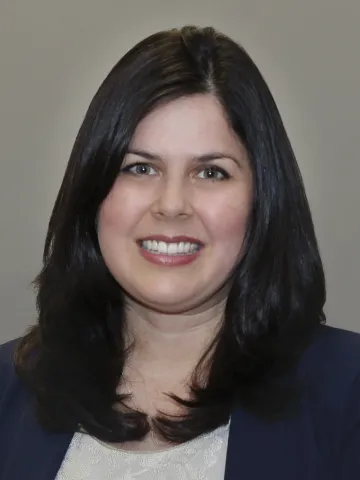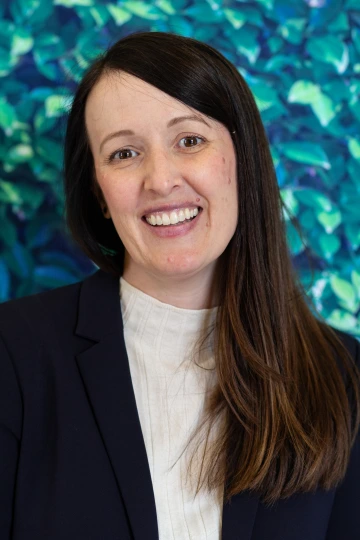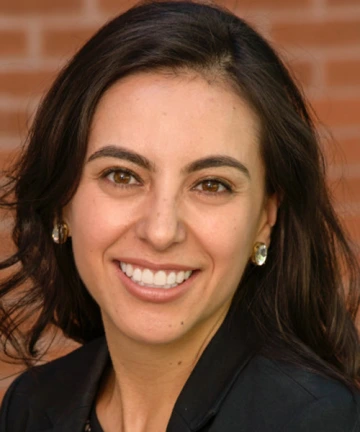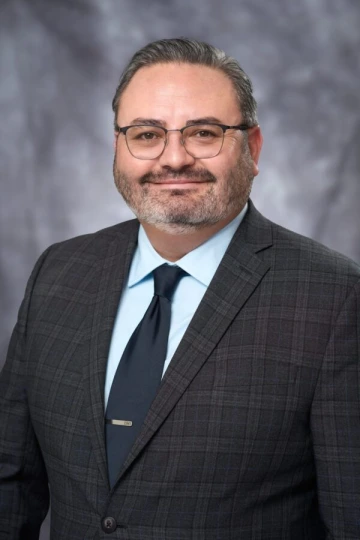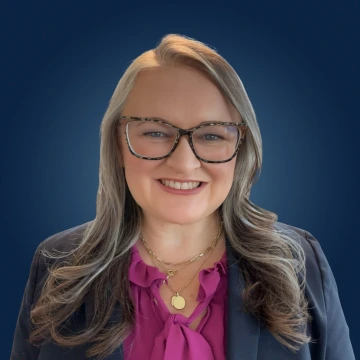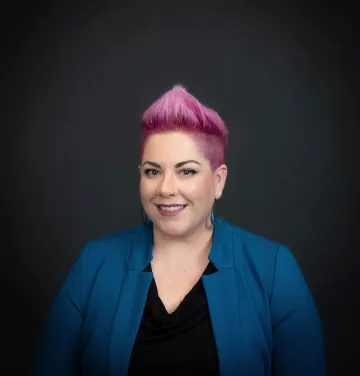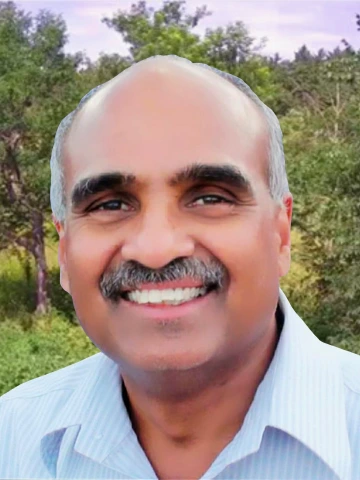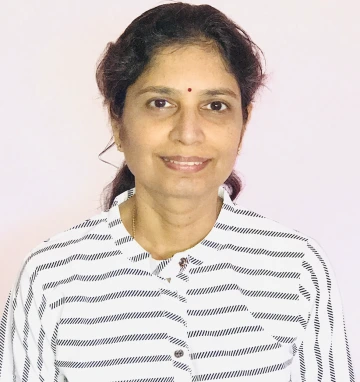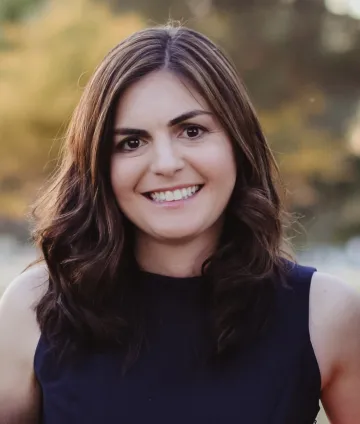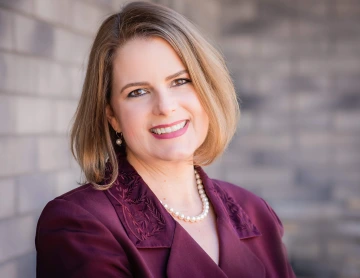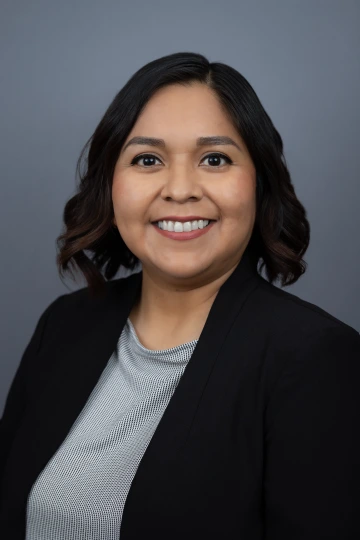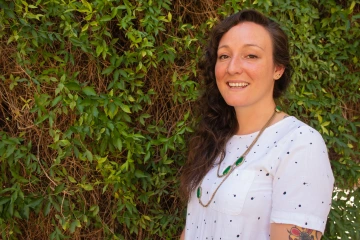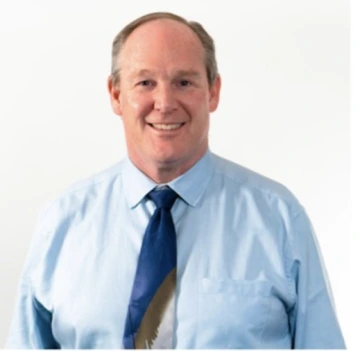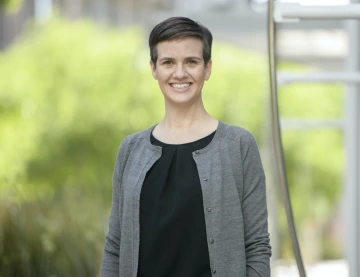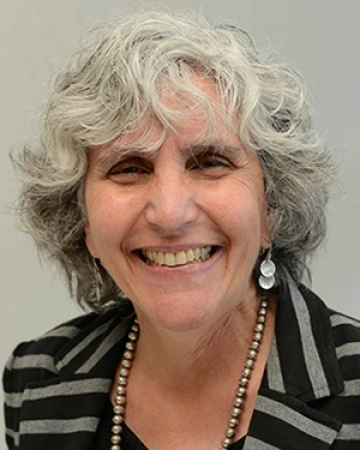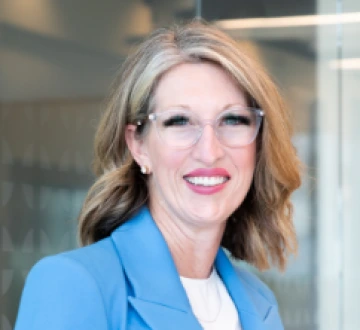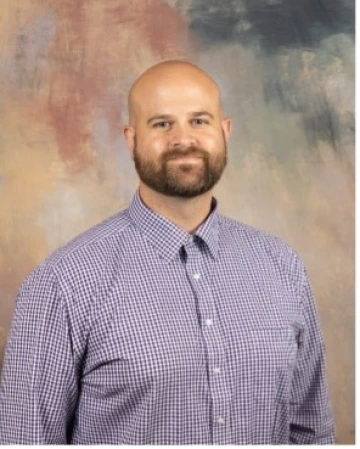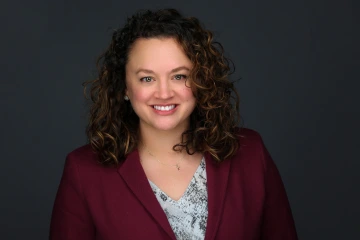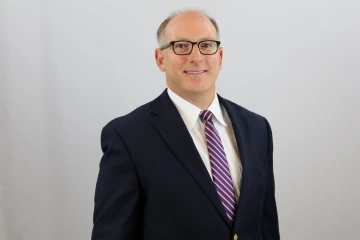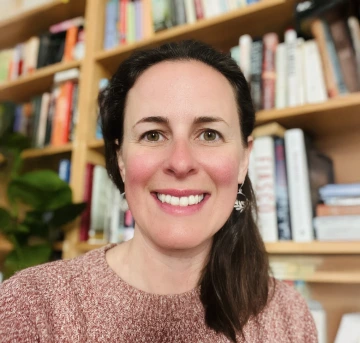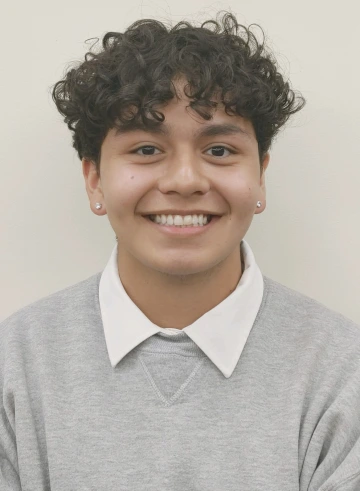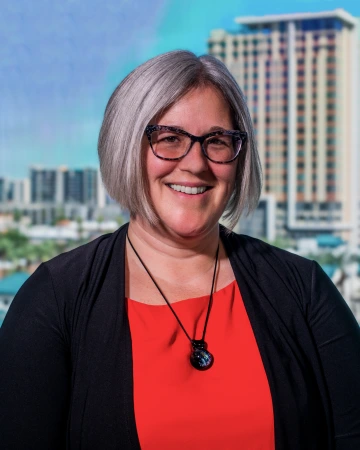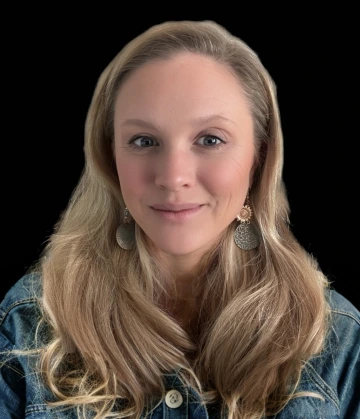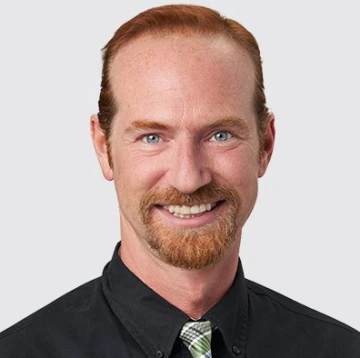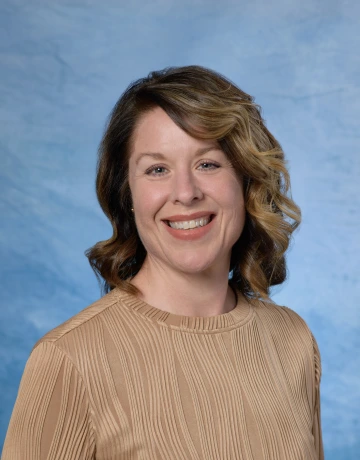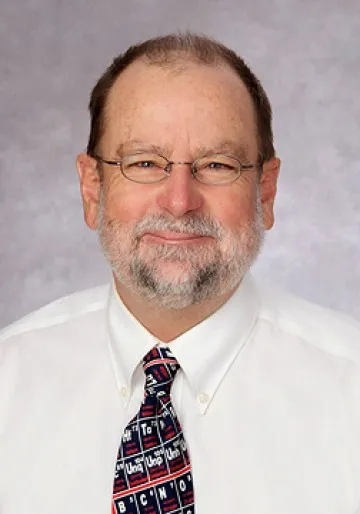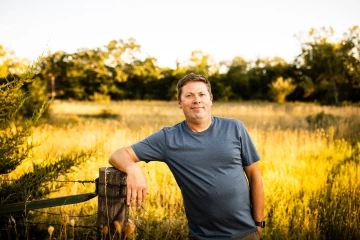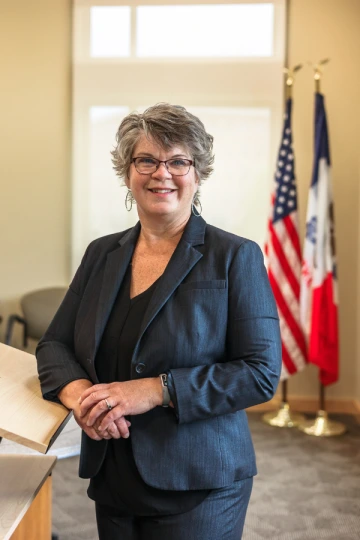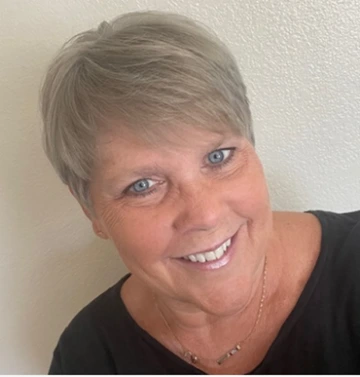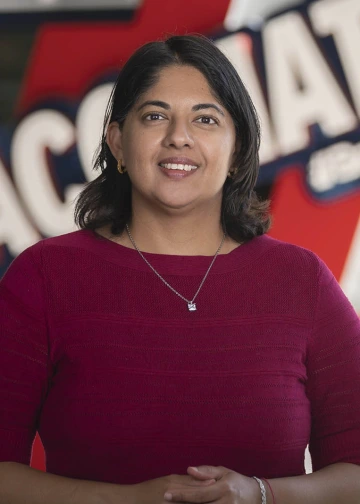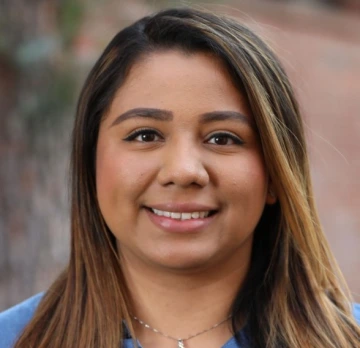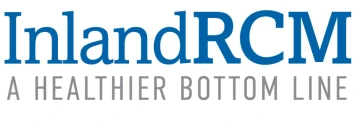In support of improving patient care, these selected activities have been planned and implemented by the Arizona Center for Rural Health and the Western Region Public Health Training Center (WRPHTC). The WRPHTC is jointly accredited by the Accreditation Council for Continuing Medical Education (ACCME), the Accreditation Council for Pharmacy Education (ACPE), and the American Nurses Credentialing Center (ANCC), to provide continuing education for the healthcare team.
Day 1: Tuesday, June 3
7:30-9:00 Continental Breakfast
Overview of the Primary Care Office, Health Professional Shortage Area Designations, updates on the Governor's Health Workforce Cabinet, and other programs aimed at increasing the health care workforce in Arizona.
Humphreys: Workforce Development
Arizona Center for Rural Health - Health Workforce Data Resources
overview of the health workforce data resources available from the Arizona Center for Rural Health (AzCRH), focusing on the Arizona Health Workforce Profile Report. This report uses health workforce licensure data from the Arizona licensing boards to present a snapshot of the health workforce in 2019, 2021, and newly added 2023 data on occupational therapists, respiratory therapists, and physical therapists. This presentation will summarize other data resources including mapping and reports available from the AzCRH as well as important state and federal health workforce data sources. Attendees will learn from examples of how health workforce data from the AzCRH and other sources have informed assessment, planning, grant application efforts in rural Arizona. As time permits, attendees will also engage in a discussion and feedback to identify what next steps should be implemented in Arizona to support workforce planning and development efforts.
Doyle/Rees: Strengthening Resilience
Strengthening communities to address overdose prevention and substance use care in rural Arizona
In 2023, there were 1,603 opioid overdose deaths among Arizona residents. The leading cause was prescription and synthetic opioids (97.9%). According to the 2023 National Survey on Drug Use and Health (NSDUH), polysubstance abuse is a critical issue, with 37% of people who misuse opioids also misusing other substances like alcohol, benzodiazepines, or stimulants like cocaine. (SAMHSA, 2023). For rural Arizona, substance and opioid use disorders (SUD/OUD) have limited resources. Yet, rural communities are resilient and have natural supports that may serve as protective factors and enhance health equity.
The AzCRH, Arizona Department of Health Services (ADHS) - Centers for Disease Control and Prevention (CDC) Overdose Data to Action State (OD2A-S) initiative expands education and prevention programs for community health workers and health professionals. We develop and deliver content on overdose recognition and naloxone administration, assess, developed and maintained a centralized database of non-Medicaid addiction resources, and developed training and technical assistance plans to support healthcare organizations to implement and integrate the 2022 CDC Clinical Practice Guideline. By educating health care professionals, we ensure that persons have equitable access to safer and effective pain care while reducing risks associated with prescription opioids. Prevention, harm reduction, treatment, and recovery work.
Abineau/Fremont: Systems Innovation
Moving Systems for Rural Communities
Traditional approaches to social impact are not solving our world’s most complex challenges. We need a shift in the system, and it will take all of us. This session will introduce the concept of systems and systems thinking, highlighting the often-implicit conditions holding problems in place. We’ll explore the central role of collaboration to drive any system change effort and discuss common pitfalls and opportunities when we seek to collaborate—particularly across lines of difference. Whether you’re exploring a new collaborative initiative or deeply engaged in an existing effort, participants will come away with practical tips and strategies for more effectively collaborating to advance lasting change.
Please visit with our Exhibitors:
Humphreys: Workforce Development
Recruiting and Retaining International Medical Graduates to Meet Workforce needs
For over 20 years our boutique law firm has been dedicated to assisting employers in the medical field to hire and retain U.S.-trained International Medical Graduates (IMGs). This presentation will include an overview of the process to recruit and hire IMGs completing their U.S. residency or fellowship in J-1 status, and who will require a waiver and visa sponsorship. It will also include information for sponsoring "cap-exempt" H-1B physicians and other allied healthcare providers. Finally, we will discuss the process to sponsor a physician for permanent residence, setting up incentives for retention.
Doyle/ Rees: Strengthening Resilience
Navigating Confidentiality In Rural Communities
Navigating Confidentiality in Rural Communities explores the unique challenges of maintaining survivor confidentiality in rural settings, where close-knit communities, limited services, and overlapping relationships can create barriers to privacy. This training highlights the importance of confidentiality for survivor safety, trust, and empowerment while addressing legal protections such as VAWA, HIPAA, and FERPA.
The presentation examines specific obstacles faced by rural and Indigenous survivors, including geographic isolation, lack of anonymity, stigma, and cultural barriers. It also discusses best practices for advocates, such as setting clear confidentiality boundaries, securing data, and implementing organizational policies that protect survivors' information.
Practical solutions are provided, including strategies for discreet service delivery, alternative meeting locations, and intentional boundary-setting to maintain trust while upholding ethical responsibilities. Participants will gain insights into the legal and ethical considerations surrounding confidentiality and leave with concrete strategies for supporting survivors in rural communities while respecting their privacy and autonomy.
Abineau/Fremont: Systems Innovation
Leveraging AI to Mitigate Operational Risks in Rural Healthcare
Rural hospitals face unique challenges, from staff retention to compliance management and cybersecurity threats. AI-driven tools can help mitigate enterprise risks and automate administrative workflows to optimize operational efficiency. This session will explore how rural hospitals can implement cost effective AI solutions to fully leverage limited resources and enhance hospital financial sustainability.
Moderator:
Humphreys: Workforce Development
An Emergency Department Story of Success with Peer Support "All We Did Was Say Yes"
A culmination of 2 1/2 years of work from a HRSA RCORP Grant that involved a partnership with a community Consortium, a Peer Run Organization, Hope Inc, and Summit Regional Medical Center to put Peer Support Specialists (PSS) in the ED and Hospital. With personal stories, implementation and outcome and return on investment data this presentation was chosen first place by over 650+ attendees in Washington DC, March 6, 2025, at the HRSA RCORP Reverse Site Visit Innovation Tank Presentation.
Doyle/ Rees: Strengthening Resilience
The WEST Environmental Justice Center at the University of Arizona conducted a needs assessment in Arizona to understand capacity, strengths and needs related to environmental justice. The needs assessment included listening sessions in English and Spanish with 32 participants representing grassroots organizations, non-profit organizations and Tribal communities, including many rural and remote areas of Arizona. The listening sessions were co-designed and co-facilitated with community partners. The needs assessment integrated primary data from the listening sessions and WEST EJ Center documentation with secondary data including environmental needs and funding data for environmental justice work in Arizona. The key results from the needs assessment include:
- Communities in Arizona are confronting diverse environmental justice challenges in Arizona, and local knowledge is essential to addressing them
- There is a need to support local capacity to find and manage funding to address local environmental justice issues
- Community engagement efforts for environmental and energy justice should focus on understanding local history and context, showing up in both in-person and virtual spaces, and building relationships with trusted local leaders.
In this session, we will discuss the needs assessment methods and results and engage participants in further discussion about the strengths and priorities of their communities.
Abineau/Fremont: Systems Innovation
Leveraging Technology-Driven RPM: Enhancing Data, Analytics & Reporting to Advance Rural Healthcare Equity, explores the transformative potential of Remote Patient Monitoring (RPM) in rural healthcare. Dr. Kang opens by defining RPM’s role in improving data collection, patient engagement, and reporting, framing the discussion around its impact on primary care and mental health integration. The session outlines best practices for RPM deployment, including strategies for overcoming operational and reimbursement challenges, and features real-world success stories from rural settings. Dr. Michels discusses how RPM integrates into primary care workflows, enhancing chronic disease management and care coordination. Dr. Ergie highlights RPM’s role in mental health, focusing on mood tracking, medication adherence, and bridging behavioral health gaps in underserved areas. The presentation concludes with a dynamic group discussion, where speakers reflect on cross-disciplinary insights and explore future opportunities for RPM. The session wraps up with an interactive Q&A, fostering deeper engagement and offering a platform for discussing RPM’s potential to shape the future of rural healthcare delivery.
Humphreys: Workforce Development
Building a Practice-Based Research Network to Improve Primary Care Practice Across the State
Practice-Based Research Networks (PBRNs) are groups of primary care clinics and researchers working together to answer community-based health care questions that translate research findings into practice. PBRNs support and execute studies that evaluate the effectiveness of interventions across settings and can accelerate evidence-based innovations into practice through collaborations between researchers and providers. The development and expansion of PBRNs and other high-quality primary care research is a priority for the Agency for Health Research and Quality (AHRQ), especially in communities with high rates of patients traditionally underrepresented in biomedical research. Historically, PBRN studies have created significant change in clinical practice. By centering research questions on individual clinic experiences, they provide community- and clinic-informed research experiences. In collaboration with the College of Medicine-Phoenix, the College of Medicine-Tucson is building a statewide PBRN that includes any interested primary care clinics across the state. Our presentation will explore the value and structure of PBRNs, explain initially identified studies, and discuss the process for becoming a participating clinic.
Doyle/ Rees: Strengthening Resilience
The Arizona Geriatrics Workforce Enhancement Program (AZ-GWEP) works to educate and train health and supportive care workforces to care for our state’s growing older adult population. Our goal is to improve health outcomes for older adults living in medically underserved, rural, and federally recognized tribal areas by engaging patients and families, integrating geriatrics into care, and creating age- and dementia-friendly clinical care sites.
The AFHS Initiative has been an international movement since 2017. Currently over 4,000 hospitals, ambulatory practices, and long-term care sites are recognized as Age-Friendly. It is led by the Hartford Foundation, Institute for Healthcare Improvement, and the American Hospital Association. There are NO COSTS involved for clinics or hospitals to be recognized as Age-Friendly, and the process is designed to integrate into a site’s current quality improvement and care processes, rather than add new layers. Importantly, AFHS recognition will enhance a hospital’s ability to meet the new, mandatory 2025 CMS Hospital Measures, avoiding penalties and positioning for proposed incentives. Ambulatory measures and associated penalties/incentives are believed to be coming soon. There are two stages of implementation: Participation and Recognition. During this breakout session, we will discuss the AFHS 4M Framework, benefits to sites, specific steps for implementation, application forms, and submission process.
Abineau/Fremont: Systems Innovation
Smart Solutions, Stronger Communities: The Future of Rural Health
Summit Healthcare Regional Medical Center is a not-for-profit healthcare organization, including a cancer center, serving a population of over 90,000 residents in a 3,000 square mile area across the White Mountains of Northeastern Arizona. Summit has been able innovate by creating unique programs that reach patients where they are through remarkable digital excellence. This success wasn't achieved overnight. They overcame resource limitations through innovative IT strategies. Join us to discover Summit’s valuable lessons and learn how your rural health system can achieve similar innovation success.
Humphreys: Workforce Development
Integrating Incentives in Rural Provider Compensation
Rural hospitals face unique challenges when recruiting and retaining physicians and advanced practice providers (APPs). Implementing effective incentive compensation models is a key strategy to enhance provider engagement, align organizational goals, and improve patient care—yet many rural facilities struggle with limited resources, data constraints, and market variability.
This session will provide rural hospital leaders with a practical framework for designing and implementing incentive compensation programs tailored to rural settings. Using real-world case studies from critical access and small PPS hospitals, we will explore how organizations have successfully developed compensation plans that drive performance, support provider satisfaction, and maintain financial sustainability.
Participants will gain insights into key components of effective incentive models, including productivity and quality metrics, regulatory compliance, stakeholder engagement, and change management. The session will also address pitfalls to avoid and offer tools for adapting plans to evolving organizational needs.
Doyle/ Rees: Strengthening Resilience
Freestanding Birth Center to Hospital Perinatal Transfers of Care: A Multi-Method Study of Outcomes and Experiences in Arizona
In the state of Arizona, perinatal transfers of care are associated with significant geographic and communication barriers that likely lead to the increased severe maternal morbidity rates associated with perinatal transfers of care. Between 2016-2019, a stunning 27.4% of all births (n = 73,593) in the state occurred following a transfer of care before delivery. The severe maternal morbidity (SMM) rate among these births is 1.5 times higher than the rate among births in which a transfer of care did not occur, increasing to 2.1 times higher when transfer travel times were > 1 hour. The purpose of this proposed research is to analyze perinatal transfers of care outcomes from community birth practices (freestanding birth centers, home birth) to hospitals in the state of Arizona. and conduct a multi-method study to evaluate and explore perinatal transfers of care outcomes and experiences. We will achieve this purpose through 1) a secondary data analysis of Arizona community birth outcomes in the American Association of Birth Centers Perinatal Data Registry 2) a survey of perinatal transfer experiences among community birth midwives in Arizona and 3) qualitative interviews conducted with a subset of survey respondents to further explore transfer experiences.
Abineau/Fremont: Systems Innovation
Video AI to Transform Nursing Forever
Highly engaging presentation with real video footage from the ICU that demonstrates the ability of cameras with video AI to reduce burnout of nurses and give them more patient facing time. How cameras with video AI can inspect skin for pressure ulcers, sedation monitoring, pain and agitation monitoring, etc.
Addressing Language Barriers in Healthcare: The Impact of Informal Translation and Resource Gaps in Rural Communities
CONECTATE: Community health workers improving community resilience by addressing chronic disease and social connectedness in the wake of COVID-19
Exploring Students' Perceptions and Experiences of Rural Occupational Therapy Practice: A Research Protocol
Forensic Nursing at Gila River Health Care
Harm Reduction and Cannabis Conversations in Arizona
Multimodal Telerehabilitation of Rural Patients with Metastatic Prostate Cancer
Obstetric Simulation Training in Rural Arizona Communities without Birthing Centers
Strategies for Workforce Development and Improving Health Outcomes: Practice-Based Research & QI
Day 2: Wednesday, June 4
7:30-9:00 Continental Breakfast
Humphreys
An overview of system wide barriers that exist in obtaining perinatal mental health care, with a focus on the unique needs of rural areas. This will include review of the state of Arizona’s current standing in comparison to other states in their maternal health rating, discussion regarding predictors of maternal mortality, and barriers for accessing equitable care within the United States and Arizona.
Resources to improve referral networks, access to care, and strategize for working with diverse populations with cultural humility will be reviewed and shared among attendees. The presentation will also include fictional case studies with opportunities for collaborative plans to actions.
Unique Challenges of Maternal Mental Healthcare in Rural settings
Humphreys: Workforce Development
This dynamic presentation explores the transformative potential of pharmacogenetics in modern healthcare, with a focus on optimizing medication therapy, particularly for patients facing complex, chronic conditions. Attendees will begin by gaining a foundational understanding of pharmacogenetics—how genetic differences influence drug metabolism, therapeutic response, and risk of adverse effects. Key biomarkers, black box warnings, drug-drug interactions, and compliance-related challenges will be examined to build a comprehensive clinical picture. Building on this foundation, we will delve into the application of pharmacogenetic data to individualize medication selection and dosing. The presentation emphasizes integrating these insights with lifestyle factors, over-the-counter (OTC) medication use, and holistic patient assessments to enhance outcomes, especially in polypharmacy scenarios. Finally, participants will evaluate real-world strategies for implementing Medication Therapy Optimization (MTO) through pharmacogenetic testing in clinical practice. Through the lens of electronic health records (EHRs), community health initiatives, and rural health settings, this session will provide actionable guidance for engaging stakeholders and overcoming implementation barriers. Whether you're a clinician, pharmacist, or healthcare administrator, this session will equip you with the knowledge and tools to leverage pharmacogenetics for more precise, effective, and patient-centered care.
Doyle/Rees: Strengthening Resilience
The power of using a Closed Loop Referral System to address SDOH
Using Insights, a Tableau-driven data dashboard to show the impact of using CommunityCares, Arizona's Closed Loop Referral System (CLRS) to address Social Determinants of Health (SDoH) in rural communities. We will reflect real-life information from a rural community in Arizona as an example of the effectiveness of CLRS' in Rural Communities along with case scenarios.
Abineau/Fremont: Systems Innovation
Telemedicine Optimization, Reimbursement, and Policy Updates
A timely overview of key developments in telehealth to help organizations optimize service delivery and improve compliance with evolving policies and regulations. Attendees will learn how to enhance virtual care operations, navigate key reimbursement and regulatory considerations, and stay informed on evolving telehealth policy. The session will also highlight recent and proposed federal rulings that are expected to impact virtual prescribing, in-person visit requirements, and cross-state practice for controlled substance treatment. These insights are especially critical for rural communities, where telehealth provides a vital option for expanding access to care. Participants will leave with practical up-to-date knowledge and resources to strengthen and sustain their telemedicine services.
Humphreys
summary of the bills that were passed during Arizona's 2025 legislative session. I'll focus on the new laws that will be good for public health, those that are likely to be harmful, and the close calls (those that the governor vetoed). It will also cover key aspects of the final 2025-26 budget.
Humphreys: Workforce Development
The Elev8 Initiative
Gila River Health Care’s Elev8 Initiative is committed to strengthening its tribal healthcare system and its workforce now and the future by elevating each individual’s journey.
- LIC Medical and other health professions students as mentors and members
- Fostering the interests of K-12 students in healthcare careers. Focusing on the concept of “growing your own.”
- Cultivating community health and wellness.
Doyle/Rees: Strengthening Resilience
Multi-System Responsiveness, Vicarious Trauma, and Missed Handoffs - How System Changes Impact Both Patients and Employee Well-being and Retention
Over the past four years, Mr. Haglund, the “khaki farmer”, and Ms. Schulte, the “recovering politician,” have encountered the struggles of outdated behavioral health systems and policies firsthand. Through their collaborative leadership on various state, regional, and organizational projects across rural, remote, and frontier areas of the country, they have witnessed the pressing need for a comprehensive overhaul of the behavioral healthcare and justice systems. Their experiences and insights can be followed, listened to, and learned from on their podcast Stepping in It.
This presentation will highlight the growing trauma responses triggered by chronic stressors that have gone unaddressed over the past few years. Anxiety, depression, and isolation have reached epidemic levels in rural, remote, and frontier America. Compounding these issues is the rising tide of substance use and abuse, which exacerbates the challenges faced by these communities. Many rural and frontier states struggle with complex needs, workforce retention, and care coordination. As a result, employees are increasingly burned out, leaving providers without critical resources to meet the ever growing need.
The facilitators of this session will examine the gap between policymakers' well-intentioned designs of trauma-informed integrated care and the stark realities of implementation. The post-pandemic era has revealed a healthcare workforce traumatized by ongoing challenges and resource shortages. By exploring these issues, this presentation aims to propose solutions and initiate conversations on the urgent need for a thoughtful, well-planned structural overhaul of rural behavioral health systems.
Abineau/Fremont: Systems Innovation
Tele-Nephrology at Critical Access Hospitals in Arizona
Tele-Nephrology is being provided throughout the state of Arizona in where 4 CAHs and their clinical teams are keeping their patients in the community versus transferring them to the urban hospitals. Nephrology patients are high utilizers of healthcare, it is always better for the patient, their family and the community in providing care locally. Not only is it impacting the hospital, but also the other healthcare providers in the community - a win/win solution for all involved.
Some of the lessons to be learned are; how to analyze your CKD population, projection of the hospitalizations, and why they are being hospitalized. How the clinical team became the champions of a new service line within the CAH and the development of proven clinical processes, procedures and the competencies required to deliver quality care locally and the halo effect it had on a hospital.
Extreme heat poses a growing threat to community health and wellbeing, directly endangering lives and exacerbating existing health disparities. As one of the leading weather-related causes of death in the U.S., extreme heat claims thousands of lives annually, with vulnerable populations bearing the brunt of its impacts. Heat risk is amplified for vulnerable community members including older individuals, those with chronic illnesses, and outdoor workers. Rural communities face unique challenges in mitigating the effect of extreme heat making it important to identify, document and plan for opportunities to increase resiliency in rural populations. This session seeks to understand the impact of extreme heat on rural communities including existing support systems, community response efforts and needs to creating opportunities for heat relief and resilience. The Southwest Center for Outreach and Resilience in Climate and Health (SCORCH) and the Center for Rural Health at the University of Arizona in collaboration with Arizona Department of Health Services seek to engage rural partners in building heat resilience in Arizona communities. We will present information on current heat risk, vulnerability factors and weather trends in rural communities; followed by breakout group discussions on heat resilience and response strategies.


